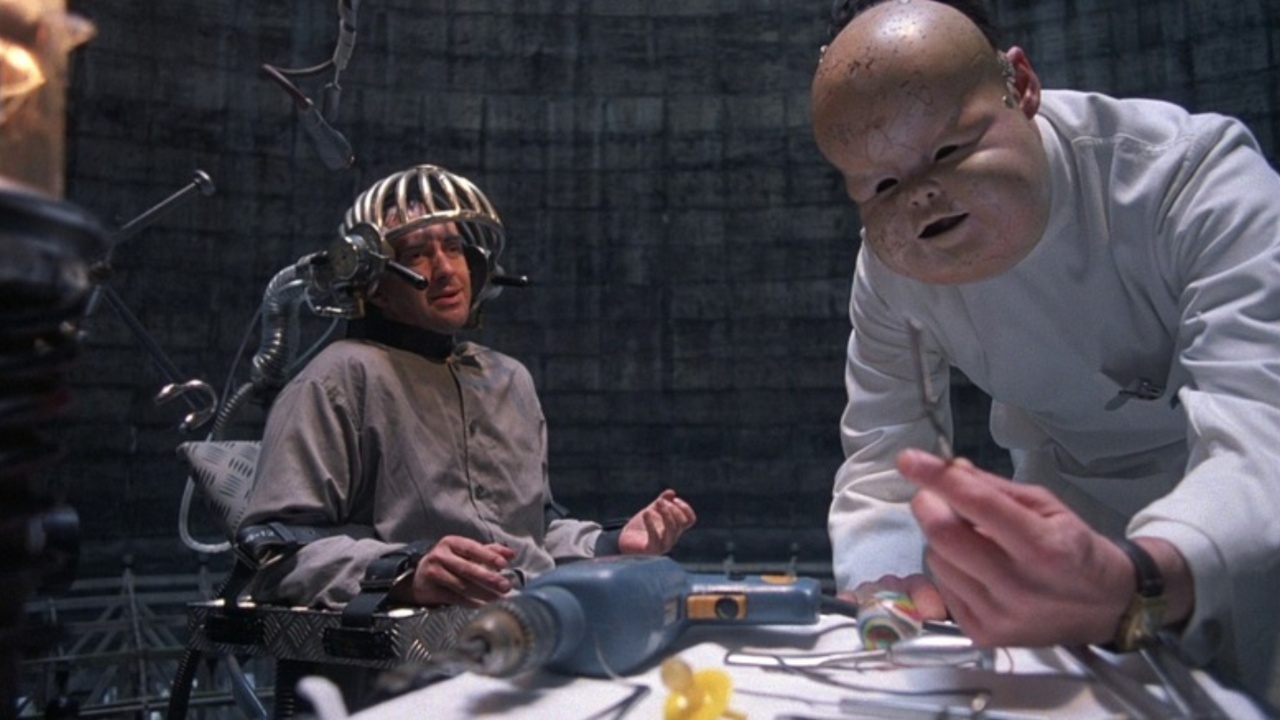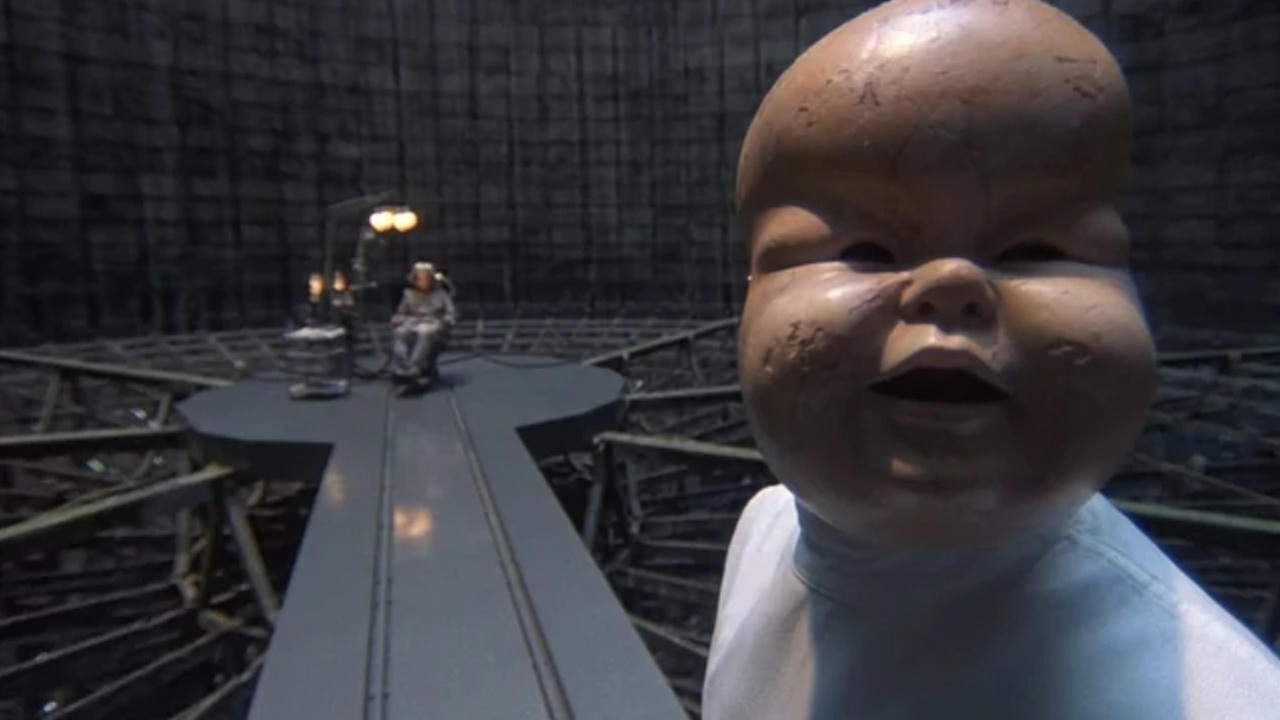At the heart of Brazil lies Sam Lowry (Jonathan Pryce), a meek and unambitious clerk working at the monotonous Department of Records. His life is drearily mechanical, suffocated by paperwork, gray offices, and a rigid bureaucratic system. To escape this dull existence, Sam retreats into vivid dreams where he imagines himself as a heroic, winged knight rescuing a beautiful maiden from monstrous foes. These fantasies represent his yearning for freedom, purpose, and love, everything missing from his reality.
Through Sam’s dream life, Terry Gilliam sets up the central theme of imagination as rebellion against an oppressive, dehumanizing system.
The film’s central conflict begins when a fly gets trapped in a printer at the Ministry of Information, causing a fatal clerical error. The innocent Archibald Buttle is wrongly identified as terrorist Archibald Tuttle (Robert De Niro), arrested, and killed. Sam’s anxious superior, Mr. Kurtzmann (Ian Holm), asks him to fix the paperwork and cover up the blunder.
During the process, Sam meets Jill Layton (Kim Greist), Buttle’s neighbor, who bears a striking resemblance to the maiden from his dreams. This encounter propels Sam from passive dreamer to reluctant participant in a bureaucratic nightmare as he chases the woman who seems to embody his fantasies.
Sam’s Love for Jill Leads to Rebellion, Illusion, and the Collapse of Reality
Sam’s obsession with Jill drives him to defy the authoritarian system. When he learns that she is labeled a terrorist for questioning Buttle’s death, he manipulates government files to erase her record. The two share a brief, idyllic escape together before being captured by government forces. Jill is apparently killed, and Sam is taken to “Information Retrieval,” a euphemism for state-sanctioned torture. The line between reality and fantasy begins to blur as Sam’s mind retreats deeper into delusion to cope with the horror surrounding him.

Just as Sam is about to be tortured by his friend Jack Lint (Michael Palin), a violent rescue led by Tuttle seems to shatter the Ministry. Together, they escape in a flurry of chaos and paperwork, a symbolic burial of bureaucracy. But the triumph quickly dissolves into madness: Tuttle disappears under piles of paper, Sam stumbles through surreal visions of his mother’s altered face and Jill’s resurrection, and finally escapes into a truck with Jill, driving toward a peaceful sunset.
The moment of freedom, however, is revealed to be pure fantasy. Sam remains strapped to the torture chair, humming “Aquarela do Brasil” as his mind breaks completely. His final smile signifies that, within his imagination, he has achieved freedom.
Imagination as Rebellion and the Triumph of Creative Freedom Over Oppressive Control
Terry Gilliam’s Brazil dismantles the traditional notion of heroism. Sam Lowry is no courageous rebel or noble savior; he is a timid bureaucrat whose only rebellion is through fantasy. His journey is not driven by ideals of justice or revolution but by a selfish romantic obsession.
Yet this very weakness, his escapism, becomes his ultimate act of defiance. In a world ruled by conformity and surveillance, imagination becomes Sam’s only weapon. By retreating fully into his fantasy, he defeats the system not by destroying it but by transcending it mentally, something his torturers can neither control nor comprehend.
The film’s meta-story mirrors its narrative of rebellion. Gilliam himself fought Universal Pictures to preserve the film’s bleak yet imaginative ending. The studio demanded a more marketable, “happy” version called the Love Conquers All cut, but Gilliam resisted.
His battle with the studio reflected the same struggle for creative autonomy that Brazil dramatizes on screen. When critics declared Brazil the best film of 1985, Universal finally relented, releasing Gilliam’s original cut. In both fiction and reality, Brazil celebrates imagination as resistance, proving that even when trapped within the machinery of control, the human spirit can find freedom through dreams.



